Republic of the Congo
Led by Pastor Ntumi, a line of vehicles of carrying Congolese authorities who on Tuesday launched an operation to collect weapons from former Ninja combatants in Kinkala.
The ex-combatants fought the army in the Pool region between April 2016 and December 2017 before the ceasefire agreements ended the conflict.
Disarmament is among the elements of these agreements. Approximately 3,000 weapons of all types must be collected and destroyed immediately.
“Disarmament centres have been made public. There are fifteen of them in total. Today we are launching the official ceremony of collecting weapons as required by our traditions and as of tomorrow the members of the Commission will be on the ground in the centres to receive ex-combatants or those who hold the weapons until all the weapons are handed over,” said Séraphin Ondélé, Director of Cabinet at the Interior Ministry.
The authorities are trying to assure the former Ninja combatants that they run no risk by handing over their weapons during the operation, which will last up to 25 August or beyond.
“There is the guarantee; the government has taken every measure to ensure that former Ninja combatants who hand over weapons can disintegrate safely in their villages,” Ondélé confirmed.
The surrounding villages are trying to rebuild themselves with economic activity slowly reviving around the sale of firewood, charcoal and palm wine. the people who have suffered the horrors of war demand compensation.
“We’re asking for that compensation. If the Congolese government could do something for everyone, not just the warring parties, we would be delighted,” said Fidèle Mpakala Loulendo, a leader in Kinkala district.




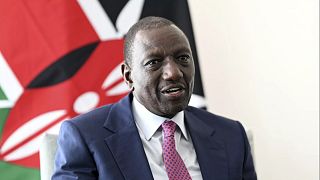

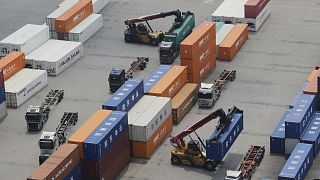
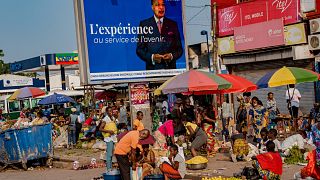

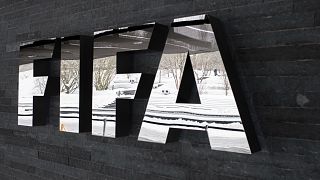
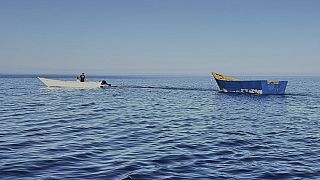

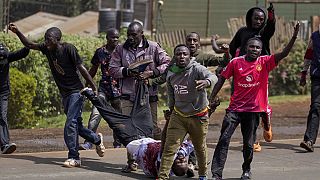
01:39
Sustainable development financing conference opens in Seville
Go to video
Equatorial Guinea secures investment-grade rating — But for how long {Business Africa}
Go to video
A booming market, but lacking data: Africa's challenge [Business Africa]
01:00
Pics of the day: January 29, 2025
02:14
Israel-Gaza: Pressure for ceasefire following Trump inauguration
01:23
UN Peacekeeping Chief Discusses Progress In CAR